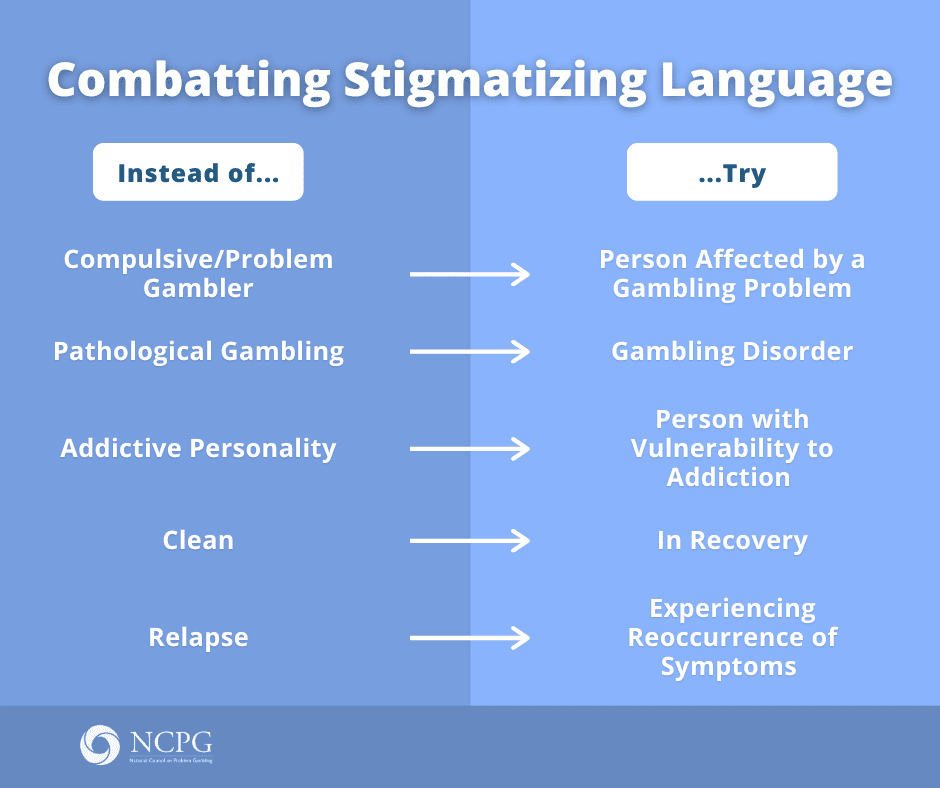
Transforming Language: How Words Shape the Conversation Around Problem Gambling
Problem gambling affects many individuals, yet the language we use when discussing it can either help or hinder those seeking support. Understanding how to communicate about gambling disorders respectfully is crucial for fostering an environment where people feel comfortable seeking help.
The way we talk about gambling disorders impacts how society views affected individuals and how they view themselves. Person-first language emphasizes that a gambling disorder is just one aspect of a person's life, not their defining characteristic.

Stigmatizing vs neutral gambling terminology guide
Key principles for discussing gambling disorders:
- Put the person first, not the condition
- Avoid dehumanizing or judgmental terms
- Use neutral, medical terminology
- Focus on recovery and solutions
- Acknowledge the potential for positive change
Stigma creates significant barriers to treatment. Many individuals delay seeking help due to:
- Shame about having a gambling problem
- Fear of societal judgment
- Self-stigma and negative self-perception
- Concerns about treatment-related stigma
Support is available for those struggling with gambling disorders. The National Problem Gambling Helpline provides free, confidential assistance:
- Call: 1-800-GAMBLER
- Text: 800GAM
- Chat: www.1800gamblerchat.org
- Available 24/7/365
Recovery from gambling disorders is possible, and many individuals have successfully overcome these challenges. By using respectful, non-stigmatizing language, we can create a more supportive environment for those seeking help and celebrate the strength of those in recovery.
Remember, behind every statistic is a person whose story deserves to be told with dignity and respect. Through conscious language choices, we can help break down barriers to treatment and support those affected by gambling disorders.
Related Articles

Self-Care Strategies Essential for Successful Gambling Recovery & Healing

